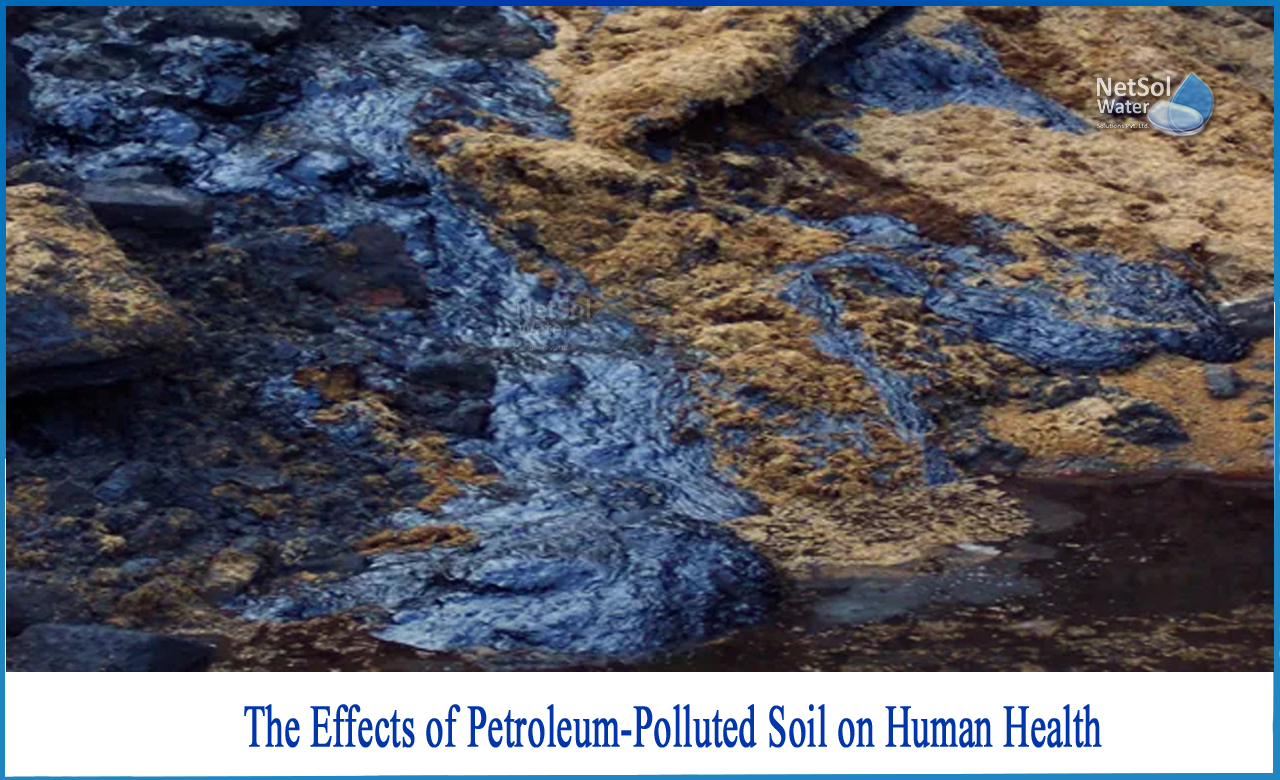What is the effect of petroleum-polluted soil on human health?
Soil is a critical component of long-term economic and social growth, and it is one of the most valuable natural resources in any country, particularly ours. Accidents, faulty operations, equipment maintenance, and other factors can cause overflow and emissions of petroleum hydrocarbons during the oil and gas exploration, production, collection, refining, storage, and sales processes.
The consequences of oil-polluted soil
The following are some of the principal effects of oil-polluted soil:
1: For starters, petroleum is easily absorbed on soil surfaces due to its low density, increased viscosity, and poorer emulsifying ability, impacting soil permeability and porosity. Because petroleum is high in carbon and contains only a small quantity of nitrogen compounds, it can alter the content and structure of soil organic matter, as well as soil C/N, C/P, salinity, pH, EH, and conductivity. Heavy metals (nickel and vanadium) in oil mixes, as well as high salt concentrations in oilfield output water, can harm soil ecosystems.
2: Second, in a healthy and clean soil, microorganisms are numerous in the natural environment. In a normal condition, microorganisms that can withstand oil pollution stress are not created; nevertheless, in polluted soil, they can manufacture particular enzyme systems and progressively form a dominant population with a symbiotic or synergistic impact in order to adapt to this type of environment. A number of studies have indicated that hydrocarbon pollution can alter the microbial population, community structure, and enzyme system in soil, with inhibitory action taking precedence.
3: Third, it can obstruct normal crop growth by lowering germination rates and fertility, as well as decreasing pest and disease resistance. Furthermore, the oil compounds may react with inorganic nitrogen and phosphorus, restricting nitrification and phosphoric acid removal, lowering effective nitrogen and phosphorus in the soil and affecting crop uptake.
4: Furthermore, petroleum chemicals contain polycyclic aromatic hydrocarbons, which have carcinogenic, mutagenic, teratogenic, and other harmful effects. It can enter people and animals' bodies by inhalation, skin contact, and eating, deteriorating the normal operation of livers and kidneys, among other organs, posing a serious health risk.
5: Finally, oil pollutants in the soil have an impact not only on the pedosphere, but also on the atmosphere and the water cycle. To be more specific, low boiling point and light weight hydrocarbons can easily enter the atmosphere through evaporation; next enter the groundwater system by runoff and penetration into surface water and osmosis; and lastly enter human bodies through the food chain.
Conclusions
In a nutshell, restoring petroleum-polluted soil is a difficult task. At the moment, the most common physical and chemical restoration treatments are heat treatment and chemical leaching, which can swiftly treat large-scale polluted soil.
Other low-cost, no-secondary-pollution remediation solutions are also needed, particularly for short emergency responses, such as well blowouts, oil leaking accidents, and so on. In actuality, petroleum pollutants are significantly more complicated; the majority of soil residues are high-molecular-weight PAHs and non-hydrocarbon molecules, with soil salinization and heavy metal contamination possibly present. Given this, it becomes a project of utmost importance to find out ways of the reclamation of soil and to render it poison free.
Netsol Water is Greater Noida-based leading water & wastewater treatment plant manufacturer. We are industry's most demanding company based on client review and work quality. We are known as best commercial RO plant manufacturers, industrial RO plant manufacturer, sewage treatment plant manufacturer, Water Softener Plant Manufacturers and effluent treatment plant manufacturers. Apart from this 24x7 customer support is our USP. Call on +91-9650608473, or write us at enquiry@netsolwater.com for any support, inquiry or product-purchase related query.



